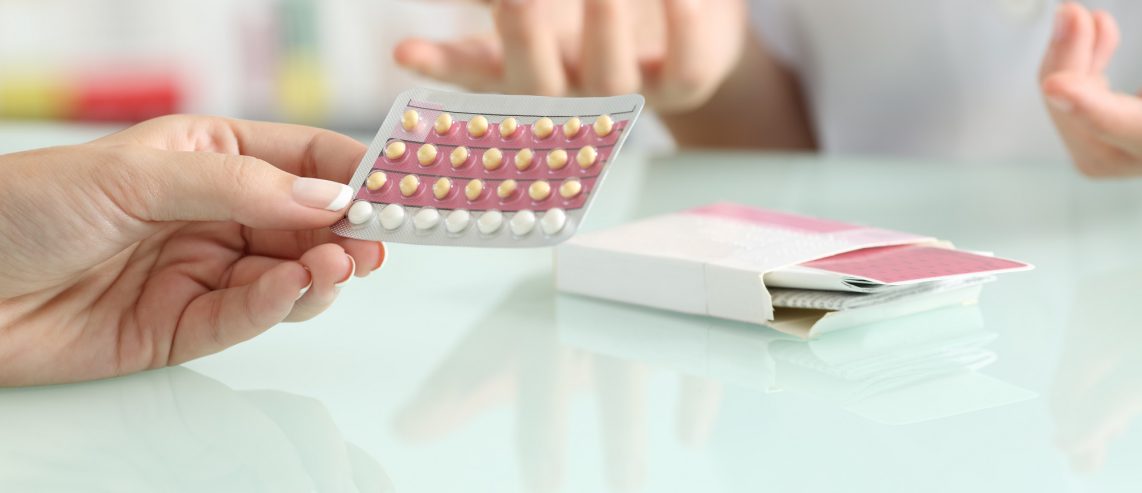It’s not uncommon to notice changes in your body when you stop using hormonal birth control like the pill or a hormonal IUD. Hormones regulate and influence so many different functions in your body. Stopping (or starting) hormonal birth control may cause changes in everything from your skin and hair to your weight and mood.
Post-birth-control syndrome (PBCS) refers to the changes and symptoms that happen to some women after stopping hormonal birth control. Learn more about PBCS, including the symptoms, causes, and treatment.
New Here - Sexual Health
What Is Post-Birth-Control Syndrome?
PBCS isn’t a disease that requires treatment. Instead, it’s a group of signs and symptoms that sometimes develop a few months after stopping hormonal birth control. Although unpleasant or uncomfortable, these symptoms are usually temporary and not a sign of a serious condition.
Not all women experience PBCS, but those that do may have one or more of these symptoms:
- Changes in your menstrual period, like lighter, heavier, or missed periods.
- Mood swings or PMS-like symptoms.
- Headaches.
- Acne.
- Hair loss.
- Changes in sex drive.
- Breast tenderness.
Never Miss a Beat!
Subscribe to Our HealthBeat Newsletter!
Thank you for subscribing!
You can now select the specific newsletters you'd like to receive.
You are already subscribed.
Subscribe to more newsletters in our email preference center.
Sorry, an error occurred. Please try again later.
Get Healthy Tips Sent to Your Phone!
Causes of Post-Birth-Control Syndrome
Health care professionals aren’t entirely sure why some women experience symptoms after stopping hormonal birth control. More than likely, it’s due to your body adjusting to changing hormone levels.
Hormonal forms of birth control include:
- The pill
- Hormonal IUDs
- Contraceptive implants
- Skin patches
- Vaginal rings
- Hormone injections
Hormonal forms of birth control may provide a combination estrogen and progestin, or they may provide progestin-only. When you stop taking these forms of birth control, your hormone levels change suddenly, which may trigger symptoms.
Treatments for Post-Birth-Control Syndrome
Symptoms will eventually resolve on their own once your hormone levels even out. That happens within a month or two for many women, but it can take up to six months.
There is no quick fix other than going back on hormonal birth control. Still, there are things you can do to reduce your symptoms. These include:
- Try to eat lots of fresh fruits and vegetables, as well as healthy fats from olive oil, nuts, seeds, or avocado. These foods supply vital nutrients that help everything in your body, including hormones, work better.
- Ask your health care provider if you should take any supplements. Being low in certain nutrients, like healthy omega-3 fats, vitamin D, or B vitamins, might worsen symptoms. A dietitian can review your diet and determine if you need any nutritional supplements.
- Get plenty of exercise, ideally outside in the fresh air and sunshine. Regular physical activity makes you feel better. And sunlight provides an extra boost of vitamin D, which might help reduce PMS symptoms.
- Talk to your health care provider about bothersome symptoms like depression, headaches, or acne. They might prescribe medication to treat these.
When to See Your Doctor
If your symptoms don’t resolve within a few months, or if they’re impacting your life, it’s time to visit your doctor. They can run tests to check for other hormonal problems, like PCOS or thyroid disease. They may also advise using medications for a while until your hormones stabilize.
You should also visit your doctor if your periods haven’t returned within six months after stopping hormonal birth control. It’s always wise to have a checkup if you’re hoping to get pregnant after stopping birth control. That way, your doctor can make sure your body is ready for a healthy pregnancy.
Sources
The Journal of the American College of Nutrition. The Association Between Vitamin D and Premenstrual Syndrome: A Systematic Review and Meta-Analysis of Current Literature. LINK
About UPMC Magee-Womens
Built upon our flagship, UPMC Magee-Womens Hospital in Pittsburgh, and its century-plus history of providing high-quality medical care for people at all stages of life, UPMC Magee-Womens is nationally renowned for its outstanding care for women and their families.
Our Magee-Womens network – from women’s imaging centers and specialty care to outpatient and hospital-based services – provides care throughout Pennsylvania, so the help you need is always close to home. More than 25,000 babies are born at our network hospitals each year, with 10,000 of those babies born at UPMC Magee in Pittsburgh, home to one of the largest NICUs in the country. The Department of Health and Human Services recognizes Magee in Pittsburgh as a National Center of Excellence in Women’s Health; U.S. News & World Report ranks Magee nationally in gynecology. The Magee-Womens Research Institute was the first and is the largest research institute in the U.S. devoted exclusively to women’s health and reproductive biology, with locations in Pittsburgh and Erie.






